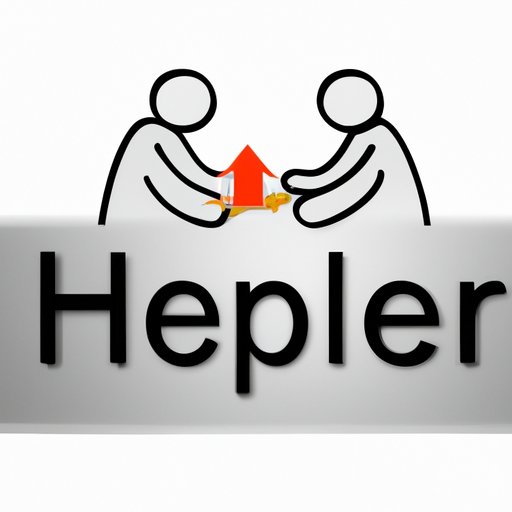Introduction
Enabling is a term used to describe a person who enables another person’s behavior or addiction. It can be defined as providing assistance or support that allows the other person to continue their unhealthy behavior without taking responsibility for it. This can include anything from financial aid to covering up lies or even making excuses for them. Enabling behaviors can be damaging to both parties and can lead to serious consequences. In order to stop being an enabler, it is important to recognize the signs of enabling and take the necessary steps to break the cycle.

Identify and Acknowledge Your Role as an Enabler
The first step towards stopping enabling behavior is to recognize the signs of enabling. These signs can include providing money, making excuses, lying, or taking responsibility for someone else’s actions. It is also important to acknowledge your contribution to the problem. This means accepting that you have enabled the other person’s behavior and taking ownership of the role you have played in allowing it to continue.
Set Boundaries and Stick to Them
Once you have identified and accepted your role as an enabler, it is important to set healthy boundaries and stick to them. Establishing boundaries involves creating limits on what you are willing to do or not do when it comes to helping or supporting the other person. It is important to understand the consequences of breaching these boundaries, such as ending the relationship or cutting off contact. This can be difficult but is essential for breaking the cycle of enabling.

Focus on Yourself and Your Needs
In order to stop enabling, it is important to focus on yourself and your own needs. This means taking time for yourself and understanding your own worth. Making time for self-care is essential for maintaining good mental health and avoiding burnout. It is also important to recognize that your needs are just as valid as anyone else’s and that you are entitled to them.

Seek Professional Help if Necessary
If you find that you are unable to stop enabling on your own, it may be beneficial to seek professional help. Knowing when to ask for help is an important part of taking care of yourself and making sure you are getting the support you need. There are many resources available, such as therapists and support groups, that can provide guidance and advice on how to stop being an enabler.
Practice Self-Care
Finally, it is important to practice self-care in order to maintain your mental health and well-being. This includes implementing healthy habits such as eating nutritious meals, exercising regularly, and taking time for relaxation and fun. Taking care of yourself is essential for maintaining balance and avoiding burnout.
Conclusion
Enabling can be damaging to both parties involved and can lead to serious consequences. In order to stop being an enabler, it is important to identify and acknowledge your role as an enabler, set boundaries and stick to them, focus on yourself and your needs, and seek professional help if necessary. Finally, practice self-care in order to maintain your mental health and well-being. With patience and dedication, it is possible to break the cycle of enabling and create healthier relationships.
(Note: Is this article not meeting your expectations? Do you have knowledge or insights to share? Unlock new opportunities and expand your reach by joining our authors team. Click Registration to join us and share your expertise with our readers.)
